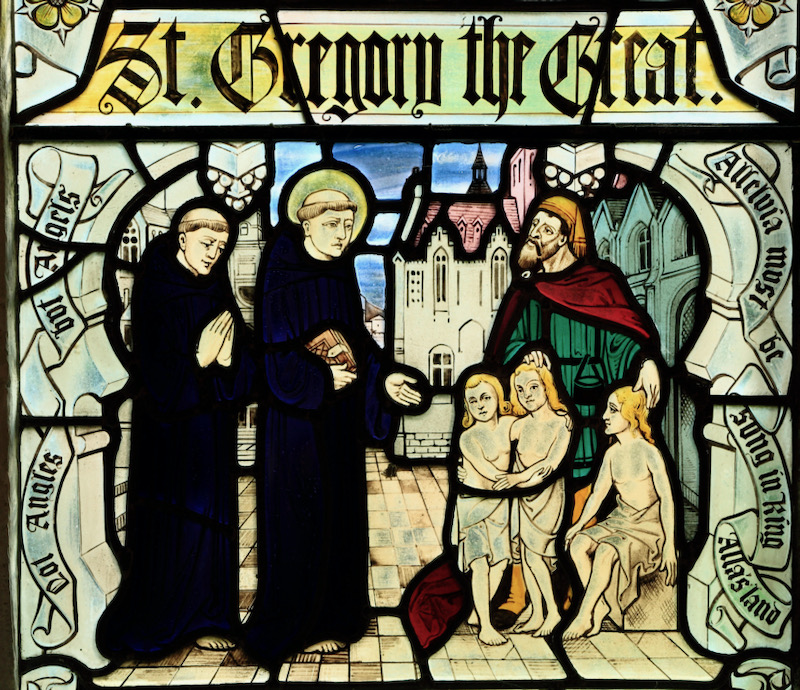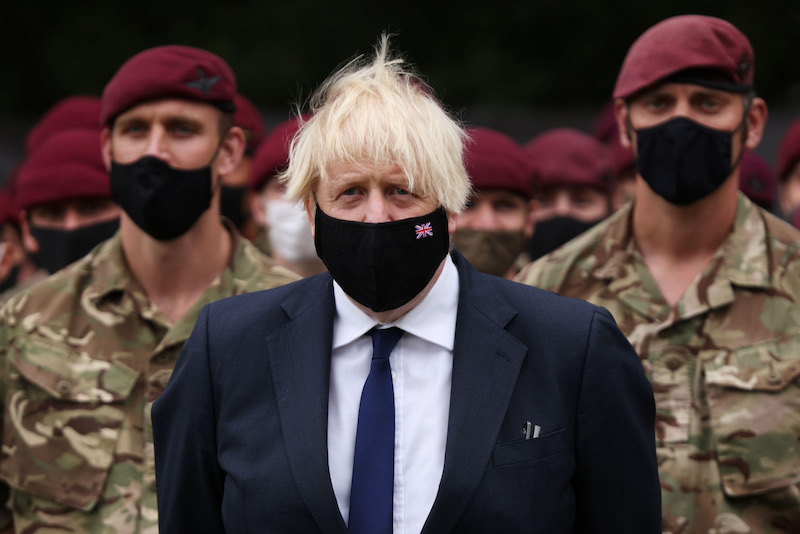A Tory prime minister – Harold Macmillan, I believe – was showing a visitor round the House of Commons, when one of them asked him who sat where? He indicated the Labour benches. “The enemy?” the visitor asked. “No, they are the Opposition,” said the PM; then, waving to the benches where Tory backbenchers sat, he added: “They are the enemy”.
Judging from the Tory press, one gets the impression that the greatest threat to Boris Johnson comes from within his own party, indeed even within his own Cabinet. The divisions are now clearly visible above the surface. The context varies; there is an “off the record” briefing war going on between the Foreign Secretary Dominic Raab, the Home Secretary Priti Patel, and the Defence Secretary Ben Wallace, over who was most at fault over the Afghanistan debacle. And there is another war going on about possible tax rises to pay for the NHS backlog and for a reform of social care, which pits the Chancellor of the Exchequer, Rishi Sunak against the Health Secretary, Sajid Javid, and even prime minister Johnson himself.
There is intense Tory dissatisfaction with the performance of Education Secretary Gavin Williamson, over exams, over Covid precautions in schools, indeed over almost everything; and with Environment Secretary Robert Jenrick, over alleged plans to build houses on Green Belt land in the face of local objections. From all this in-fighting, only two names emerge with any credit: Wallace and Sunak.
But there are deeper divisions than these personality clashes and rows over performance. When the dust settles, the question Tory MPs will ultimately have to answer is this: do you follow Friedrich Hayek, Margaret Thatcher’s favourite guru, or John Maynard Keynes, Hayek’s arch enemy and architect of the global post-war economic system? Or can Boris Johnson both have his free market cake and still eat it, through a massive surge in State spending paid for by borrowing? Can he be both a Hayekian and a Keynesian? Or will the wheels finally come off the Boris project, as an irresistible force meets an immovable object?
A large part of the Conservative Party is still wedded to the state-shrinking economic doctrines known as Thatcherism, but the Government itself has realised that it had no alternative but to spend its way through the economic shocks of the Covid pandemic. This has the makings of a train wreck, when the two incompatible alternatives collide. As they may do this autumn.
Hayek taught that the State was the enemy of freedom, the “Road to Serfdom”, which was the title of his most famous book. She ordered every member of her Cabinet to read it, and no doubt it still occupies a privileged space on the bedside table of many of their successors.
Keynes, on the other hand, was the principle inspiration behind the co-called postwar economic consensus, which made the State the principle actor in the economy before which all other forces and influences had to give way. The difference with Hayekian approach is simply put: at a time of economic hardship, you either cut your public spending in order to live within your means, which means tax cuts; or you expand it, borrowing the money to make up for falling tax revenues, which means tax rises. The first option leads to a painful drop in personal income for the majority of the population, thus taking money out of circulation with consequent knock-on effects throughout the economy, which shrinks. The second puts money into circulation through state intervention, countering the contraction and stimulating commerce and industry to keep going and, hopefully, to expand.
The first increases the hardship already being suffered. But the contraction of the State frees up resources which private enterprise can put to good use, at least in theory. The second option can generate runaway inflation, especially when rising prices drive up wages, which in turn causes prices to rise even more. This may lead to an increase in trade union militancy, including strikes, as unions strive to protect their members’ living standards. Inflation is the Keynesian Achilles heel; as austerity is for Hayekianism.
The choice between these alternatives has such a drastic effect in the lives of many individualism especially the most vulnerable, one might suppose that a key moral dimension is missing from what appears to be a purely technical argument. Austerity hurts the poor, but so does inflation. Austerity can rekindle the animal spirits as business seize their opportunities to expand or even start afresh, and jobs start reappearing to the benefit of all. On the other hand inflation reduces the value of debt, which is one of the principal scourges of poverty, and money is circulating, providing fresh income for the State from taxation to be spent for the benefit of the public including the poor.
Can Catholic Social Teaching adjudicate between these different schools in any meaningful way? It can certainly cast doubt on one central idea on the Hayekian side: that, freed of State constraint, market forces will automatically lead to a public benefit, the so-called “invisible hand” theory first described by Adam Smith.
Pope Francis put it bluntly in his 2013 document Evangelii Gaudium: “Some people continue to defend trickle-down theories which assume that economic growth, encouraged by a free market, will inevitably succeed in bringing about greater justice and inclusiveness in the world. This opinion, which has never been confirmed by the facts, expresses a crude and naïve trust in the goodness of those wielding economic power and in the sacralised workings of the prevailing economic system. Meanwhile, the excluded are still waiting.”
The conclusion, spelt out by Pope Benedict XVI in his encyclical Caritas in Veritate and by the CST tradition in general, is that the State has a duty to regulate market forces to curb their antisocial tendencies, and to direct the economy towards the service of the common good. Profit can never be an end in itself. And thus the "small state" theories expounded by Thatcher, Ronald Reagan and others in the name of individual freedom are not compatible with Catholic teaching. Reagan's most famous utterance on the subject – “The nine most terrifying words in the English language are: I'm from the Government, and I'm here to help” – sound exceedingly hollow, as New York, New Jersey, New Orleans and other parts of the Reaganite brave new world struggle to recover from the devastations caused by Hurricane Ida. This Reaganite doctrine of extreme individualism is a prime example of a “structural sin”, which can be committed, said Pope John Paul II, by “the individual against the community or by the community against the individual.”
This, in a nutshell, is the essence of the ideological problem faced by the Conservative Party. Only the State could have coped with Covid-19 and its aftermath, with private enterprise at most in a supporting role. Only the State can “level up the economy” by directing economic resources to places that market forces have neglected. Only the State can address the market failure that the domestic social-care sector has become. And so on. Yet the Conservative Party is still largely committed to the discredited and unworkable State-shrinking legacy of Margaret Thatcher. That is Boris Johnson's real enemy, and the most likely source of his eventual downfall.



 Loading ...
Loading ...
What do you think?
You can post as a subscriber user ...
User comments (0)